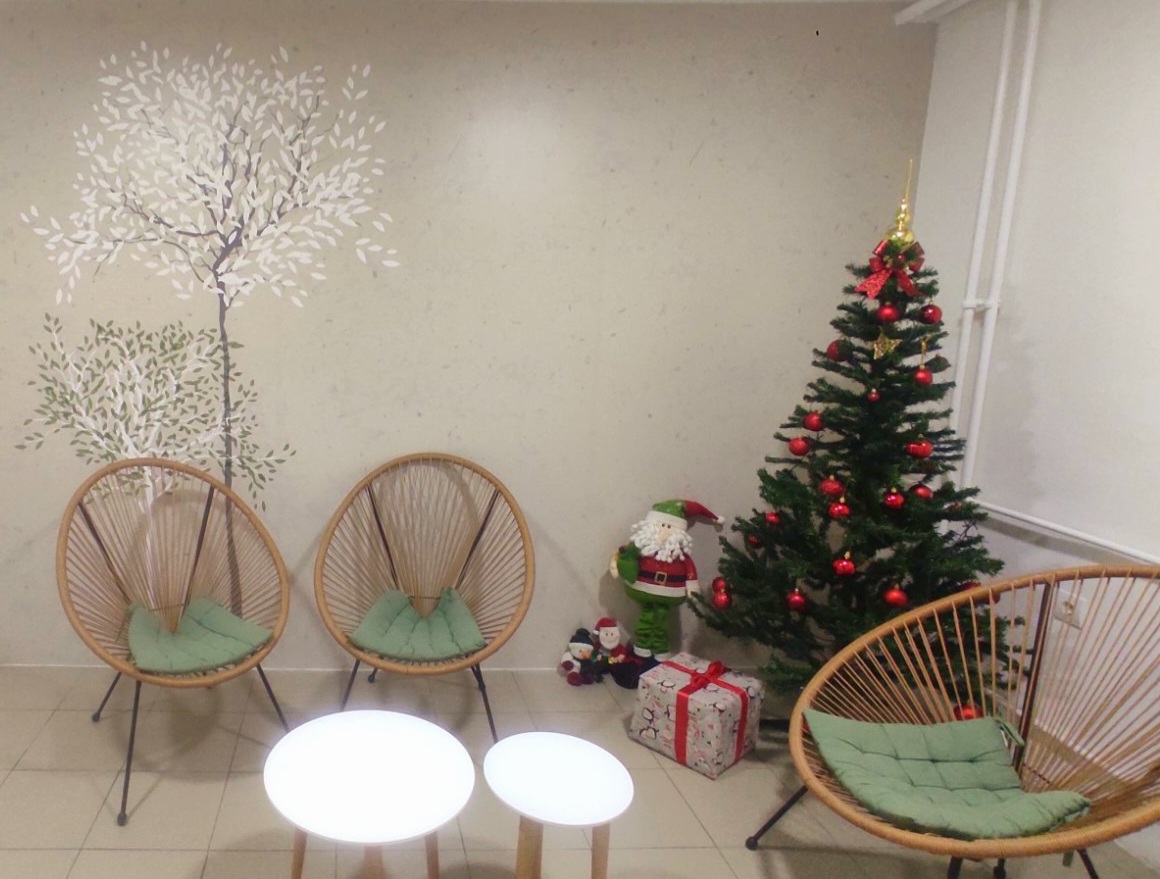Hotline: +381 61 63 84 071
Safe House. Safe Woman.

We are dedicating this newsletter to women and children victims of violence, those who are not safe and secure in the space they live in, as well as to those who are seeking shelter from violence and abusers.
With the best wishes for the holidays, we also appeal to you to help us make the topic of safe houses and shelters a priority in 2024.

Photo courtesy of Safe House Niš
We would like to thank all the women and children victims of violence with whom we had the opportunity to implement the project "Enhancement of Safety of Women and Girls by Increasing Performance of Shelters for Victims of GBV and Domestic Violence" in 2023, employees of safe houses in Kragujevac, Priboj, Niš, Leskovac and Vranje for the trust they showed us, the UN WOMEN and the British Embassy in Belgrade for their wholehearted support, as well as to all our associates who helped us in this vitally important task.
In cooperation with five safe houses, we devoted the previous year to the enhancement of the safety and security of victims of domestic and partner violence in the safe houses in Serbia. We jointly and thoroughly dealt with improving the structural and functional standards of the work of these safe houses. Safety for women, children, and employees has been possible through partial adaptations and reconstructions of safe houses. Magnetic locks and sensors were installed, parts of the shelters were renovated, protective fences were constructed, and access was made available to women with disabilities. At the heart of this project's efforts is its contribution to opening the Counseling Center for children victims of violence in Niš.
Per the choice of employees from safe houses and centers for social work, we set two key topics: work with children witnesses and victims of domestic violence and prevention of burnout syndrome in working with victims. Investing in the knowledge of 49 professionals who have completed trainings in these areas lays the foundation for long-term improvement of work with victims of violence - professionals are better prepared to manage their emotional burden, better understand children's traumas, and keep in mind their defense mechanisms and need for security.
An essential aspect of the project was the development of internal documents and specialized support programs for safe houses. Atina, an organization with twenty years of experience in running a safe house for women and girls victims of human trafficking, created packages of internal documents that facilitate professional work and provision of information to victims of violence. Specialized programs for economic empowerment and psychological counseling have been developed to support women in gaining independence and coping with trauma. These documents and information materials, available in several languages, including Roma and Albanian, became a solid basis for further empowering women and children in safe houses.
Challenges, however, remain, especially in terms of broader community support and greater understanding of the issues that victims of violence face. The need for greater involvement of local companies in the employment and empowerment of victims of violence also remains, as well as the formation of a coalition of representatives of all safe houses in the territory of the Republic of Serbia, which will act independently and be focused on strengthening the support network, ensuring that resources are available when and where they are most needed.
For all these reasons, we call on the government, the private sector, civil society organizations, and citizens to join this fight. All of you reading this newsletter's role is invaluable, whether volunteering, donating, advocating, or raising awareness. Each contribution has immeasurable value. We are convinced that together, we can build a future in which domestic violence is only a dark memory of the past and not a constant reality.

| This newsletter was developed under the project “Safety of Women and Girls in Serbia,” implemented by UN Women Serbia in cooperation with the Coordination Body for Gender Equality and Ministry of Labour, Employment, Veteran and Social Affairs, with the support of the British Embassy in Belgrade. The views in this text are those of the authors and do not necessarily represent the views of UN Women and the British Embassy in Belgrade. |












 FACEBOOK
FACEBOOK TWITTER
TWITTER YOUTUBE
YOUTUBE